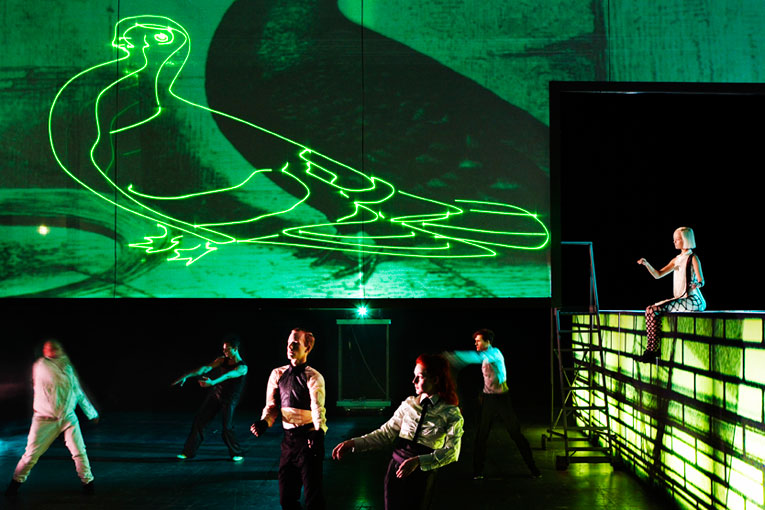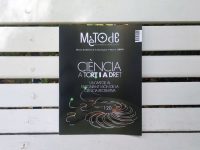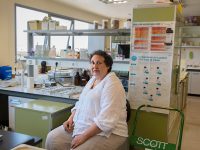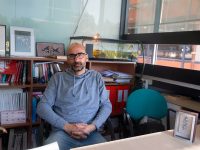
 Hotel Pro Forma Hotel Pro FormaAn image of Tomorrow, In a Year, the opera based on Darwin’s Origin of Species and composed by the electronic music duo The Knife |
||
|
The use of one of their songs in the promotional video of a right-wing extremist political party made the Swedish electronic music duo, formed by Karin and Olof Dreijer, reflect upon the perception of their music. Even though they have never hidden a certain discomfort with the banality of the show business –they refuse any offer to use one of their songs in advertising and they do not usually attend award ceremonies, even when they win an award–, this fact convinced them to make an extra effort so their work would not be misinterpreted. That is the reason their last album, Shaking the Habitual (Rabid, 2013), works perfectly as a feminist and socialist ideas manifest. In last months’ interviews, almost always focused in political issues, the duo defends once and again the thinking of French philosopher Michel Foucault, which serves as main source of inspiration for the album, as can be sensed just looking at the title. Before Shaking the Habitual, nonetheless, The Knife published Tomorrow, In a Year (Rabid, 2010), a rather unnoticed reference based in the works of another great man in the history of thinking: Charles Darwin. Actually, Tomorrow, In a Year is an assignment from the Danish theatre company Hotel Pro Forma, which intended to do an opera show based in The Origin of Species, and to carry it out The Knife had help from German musicians Mt. Sims and Planningtorock. This project made the duo face two great challenges: on the one hand, compose an opera without any experience on that account, and on the other hand, approach Darwin’s most well-known piece. The first issue is solved in a peculiar and unorthodox encounter between opera and the electronic pop of the band, which mixes synthesisers with the voice of mezzo-soprano Kristina Wahlin. Regarding the content, Karin and Olof Dreijer wanted to focus on the most political and social aspect of Darwin’s theoretical corpus. «Darwin came from a religious environment and his discoveries contradicted the point of view of the church. So the opera addresses the relation between science and religion and Darwin’s questioning of his beliefs», they declared in an interview to The Guardian. The result is a double album combining lyrics about life and the works of the English naturalist –no lack, for instance, of meticulous species descriptions or the death of his daughter Annie– with sounds of nature recorded in Iceland and the Amazon. |
«The Knife wanted to focus on the most political and social aspect of Darwin’s theoretical corpus. The opera addresses the relation between science and religion»
|
|
|
«The result is a double album combining lyrics about life and the works of the English naturalist with sounds of nature recorded in Iceland and the Amazon» |
||
 Rabid Records Rabid RecordsCover of the album, a peculiar and unorthodox encounter between opera and the electronic pop of the band, which mixes synthesisers with the voice of mezzo-soprano Kristina Wahlin. |
«The interest in political exploitation of Darwin’s legacy showed by The Knife was softened by advice from the theatre company, who preferred a more scientific focus» |
|
|
The interest in political exploitation of Darwin’s legacy showed by The Knife was softened by advice from the theatre company, who preferred a more scientific focus, centred in biology and geology. At first, Olof Dreijer wanted to know «how Darwin’s ideas turned into fascism», as he explains in another interview. However, to go into the work of the naturalist without prejudices helped him see things with a different perspective. «I thought about social Darwinism and all the bad things done in its name. […] But reading Darwin made me realise that was a big misunderstanding. I would say he had the opposite feeling. He acclaimed diversity, non-hierarchic change and variation». The title of the album comes, precisely, from the idea of change which inevitably needs to happen –tomorrow, in a year or in a million years– in a pluralist world, full of coincidences. It is as pluralist as this proposal, which homages Darwin from an experimental perspective. First, one does not clearly know how to fit a conceptual opera based in the Origin of Species and composed by an electronic music band with a strong political charge. But Tomorrow, In a Year shows again how difficult it is for the fruit of science and music not to be, at least, exciting. Something to listen to: Something to read: Felip Pineda. Mètode’s editorial staff. University of Valencia. |
«Tomorrow, In a Year shows again how difficult it is for the fruit of science and music not to be, at least, exciting» |
|





